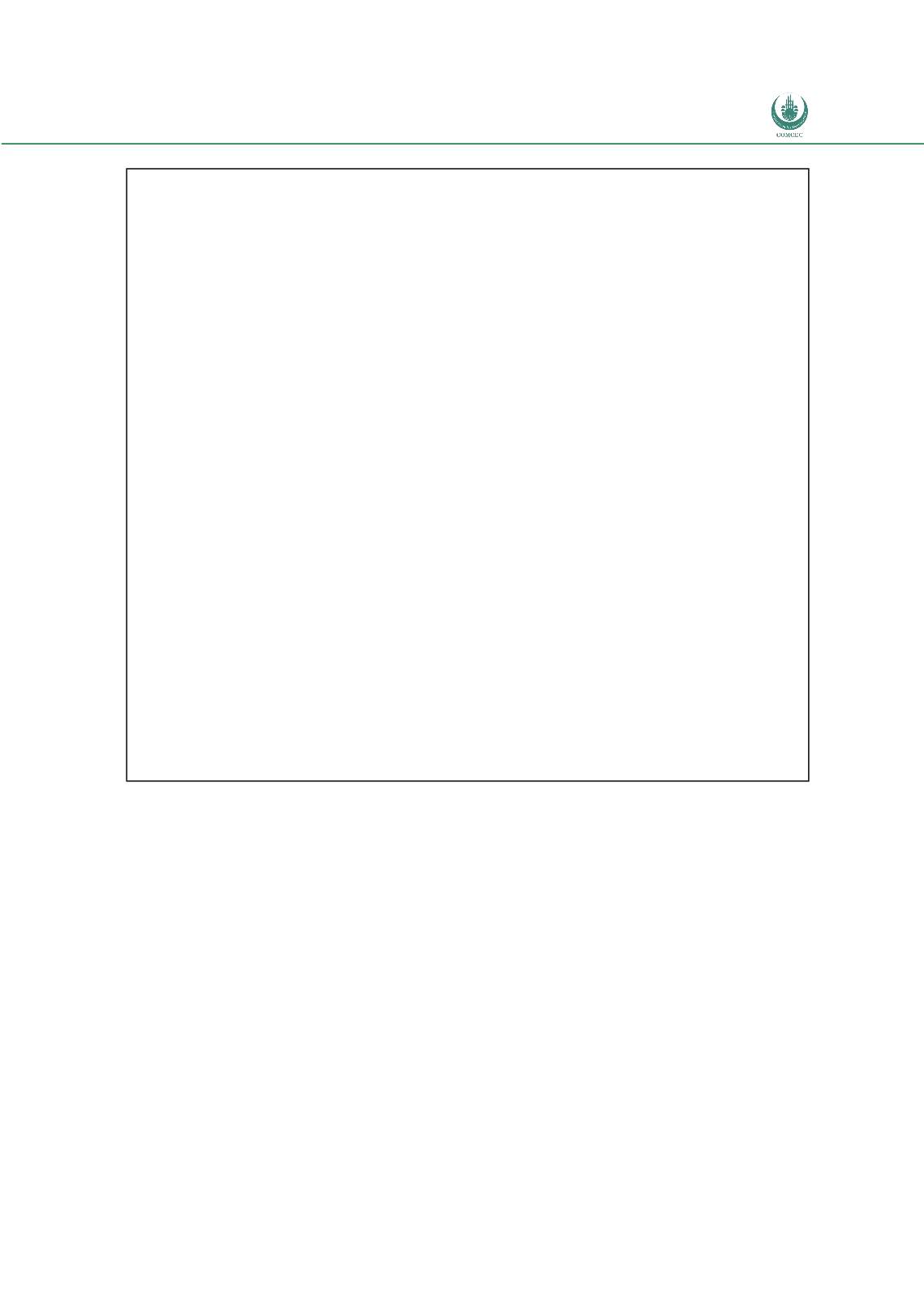

FACILITATING INTRA-OIC TRADE:
Improving the Efficiency of the Customs Procedures in the OIC Member States
67
3.1.5. Risk Management
According to Doing Business Report 2014, risk based inspections are used by 134
countries. According to the numbers provided by the Report, around 75 percent of the
non-OIC developing countries use the system. On the other hand, the total OIC Member
States using the system is 30, which represents around 52 percent. Table 13 shows the
status of Member States with regards to use of risk based inspections.
Customs Administrations of most of the Member States have engaged reform process
during the last decade which includes adopting the risk management techniques. Within
this framework, cargo is categorized into 4 (green, yellow, blue and red) depending on
their risk situation in most of these countries. The goods considered as high risky (red
channel) are subject to physical inspection in most of the countries.
Box 6: Appeal Procedures in Turkey
Appeal procedures are governed by the Customs Law. The articles 242, 243 and 244 envisage three
forms of appeals.
According to the Article 242, the incumbents may appeal through petition to a higher authority,
against customs duties, penalties or administrative decisions within 15 days after the notification. If
there is no higher authority, then the incumbent shall appeal to the same authority within the same
period.
The administration shall decide on the appeal within 30 days and notify the incumbent. The
incumbent whose appeal is rejected has the right to apply to the administrative judicial bodies in the
same district where the decision is taken.
The Article 243 is on the appeals against the results of chemical analysis. According to the article,
the incumbents may appeal in written form within 15 days to the Customs Enforcement Directorate
against the results of the chemical analysis which forms the basis for the calculation of the customs
duties. Upon receiving the appeal, another analysis will be made by other two chemists at the same
Customs Laboratory. If the incumbent requests so, the Customs Administrations will allow a
chemist, outside the customs, to be ready during the analysis as an observer. If the Chemical
Analysis subject to an appeal, is made in a customs laboratory with less than three chemists, then the
second analysis will be made by the nearest customs laboratory which has at least two chemists.
Lastly, the Article 244 of the Customs Law is on conciliation. The Customs Administration may
settle up with the incumbent for for the debts occurred due to difference between the declared
amount of the customs duties by the trader or the representative and the calculations of the Customs
Administration or for the penalties. For the conciliation, the incumbent shall state that the
noncompliance occurred due to inadequate knowledge or misinterpreting the provisions of the law.
Request for the conciliation shall be made for the customs duties and penalties which are not
appealed within 15 days after the notification. Conciliation requests are considered by the Customs
Conciliation Commissions. The decisions of the Commission are final.
Source: Turkish Customs Law

















